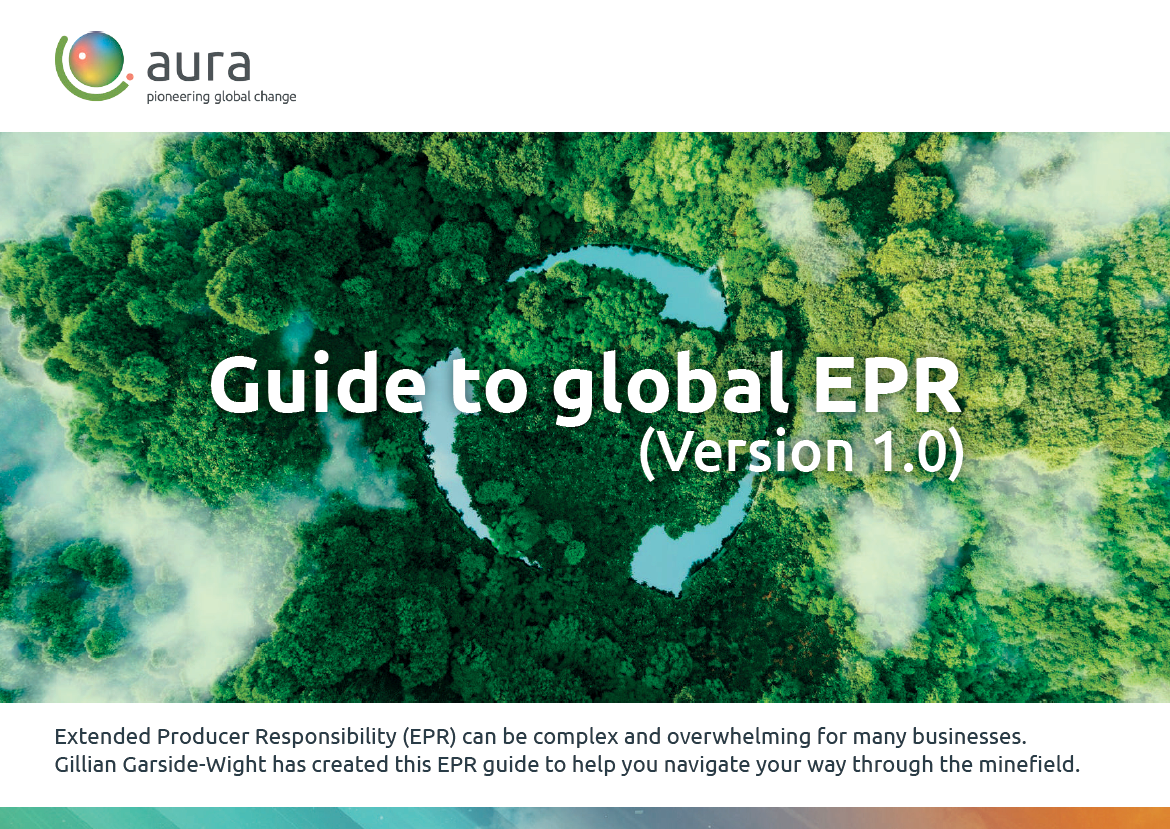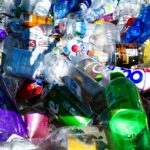Extended Producer Responsibility (EPR), easy to say but can be complex and overwhelming for many organisations especially when it has a significant financial impact.
With so much information available it can be very difficult to navigate, then multiply that by the number of countries you sell your products in and all of sudden you don’t know where to start. If this is how you feel, please do not worry, you are not alone.
This e-book explores what EPR is, who is obligated and how much it could cost your organisation, as well as a step-by-step guide to help you break down the key stages for all EPR
schemes.

Submit the form below to download your free global EPR guide.
A comprehensive guide
We’re passionate about helping organizations manage their sustainability everyday, which is why Gillian Garside-Wight, Aura’s Consulting Director, and her team have put together a comprehensive global EPR guide. This EPR guide answers essential questions including:
- What is EPR?
- How does it differ by state/country?
- Who is affected by EPR, and when?
- How much should my organization budget for EPR?
- What are the main challenges my organization will face?
- What kind of data do I need to manage EPR?
- Where do I start?
At first glance EPR may not be inspiring, it will have a financial impact, add huge complexity to the whole packaging supply chain but fundamentally it is the right thing to do.
Gillian Garside-Wight, Consulting Director
Key takeaways
Legislation has forced change on a global scale, and for very good reason, we must promote a truly circular economy if we are to meet the Paris Agreement target “to limit the temperature increase to 1.5°C above pre-industrial levels.” It can feel like legislation is moving at a pace which is difficult to keep up with, which is why you need all the tools and teams possible at your disposal.
To conclude this EPR series, Gillian Garside-Wight shares her key takeaways from many years advising global organizations on how to manage their sustainability everyday.
- Research, research, research – know your obligations and maintain your
knowledge as legislation is rapidly changing - Communication – the most important element to any complex project, all
stakeholders must be informed and on board - Packaging specifications data base – make sure you are capturing all the
granular packaging data you need for all your markets - Resource up for EPR now, from research to data collection, data cleansing and
submissions - Plan budgets for a considerable increase (UK 4 times current taxes from 2024, likely
to increase to 10 times when eco-modulation is fully implemented in 2027) - Mitigate against higher fees now – redesign the packaging components that
will attract the highest fees - Total cost of goods has never been more important, consider all potential /
current EPR fees for all new packaging - Live and accurate packaging specifications is the only answer – do not rely
on averages you could be paying more than you need to - Live data is bigger than EPR, will also drive your business strategies and support your
sustainability targets - Do not wait for tax increases (or worse, fines) to fall at your door, be proactive and
act now!
How Aura can help your organization
For further information on how Aura can support you in managing your organization’s EPR requirements, take a look at our ‘How we can help‘ article, or contact our consulting team today. We’d love to discuss how we can help you manage sustainability, globally, everyday.




